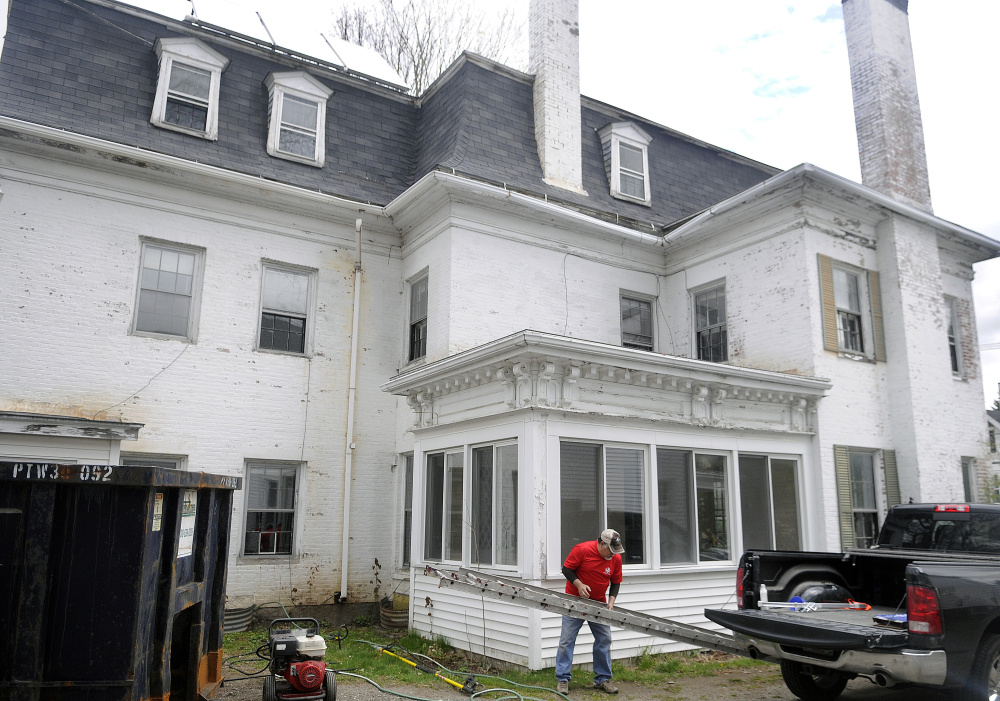Addressing issues facing our veterans and service members is a common goal for many of our community leaders and elected officials. When working toward those goals, however, we often discover there are local-level needs that state and federal programs aren’t designed to help. There are cracks in the system that these agencies aren’t flexible enough to fill and gaps in program coverage that are surprising to both those in need of assistance and those who are attempting to provide it.
Here in Maine the Legislature has an opportunity to fill one of these gaps by passing L.D. 792, “An Act to Authorize Funding for Transitional Housing for Women Veterans and Their Families”.
This bill would give a one-time, $150,000 appropriation to the Betsy Ann Ross House of Hope (BARHH) in Augusta — a transitional home for in-need or homeless female veterans and their children. While many factors may contribute to female veteran homelessness, these veterans face unique challenges that may increase their vulnerability to homelessness. Privacy and safety concerns, lack of accessible and affordable child care, and barriers to employment all contribute to our veteran homelessness problem. For some female veterans with dependent children, asking for help isn’t an option out of fear of losing their kids.
All too often we hear of female veterans “couch surfing” with family or friends in hopes of staying out of “the system.” It isn’t unusual for women to stay in an abusive relationship just to keep a roof over their heads. While it’s difficult to identify each and every homeless female veteran, we know Maine has a problem — a problem made evident by BARHH reaching occupancy limits since opening last fall.
Some veterans find us via word of mouth, while others are referred by various agencies. By simply asking the question, “Have you ever served in the military?” organizations around the state have assisted us in reaching more female veterans.
Far too many female veterans do not self-identify as such, nor do they know they are eligible for benefits. For those who qualify, the Betsy Ann Ross House of Hope is designed to give female veterans a safe place to live with their children while receiving job training, education assistance, physical and mental healthcare, and financial counseling. Many of those who have turned to the Betsy Ann Ross House of Hope are suffering from military sexual trauma or post-traumatic stress disorder.
The House is a haven for them and their children as they work through the difficult process of recovery. But the only way to ensure our veterans get the assistance they need, is if we appropriate this vital and necessary funding to keep it going.
It’s a common misconception that federal dollars are allotted for these types of programs, but that is simply not the case. It’s an unfortunate reality that not all veterans are awarded benefits through the VA system. Factors such as length of service and character of discharge contribute to a veteran’s eligibility, which leave some veterans out in the cold.
Thus far, all money used to purchase, refurbish, and furnish the home has been donated entirely by local people, charities, veterans groups, and a few grants. We have been responsible stewards of the money generously donated to us, but the coffers are getting dangerously low.
The $150,000 proposed in L.D. 792 would pay for additional work on the house to make room for three more veterans and their kids, plus one year of operating costs for the house. We can only sell so many flowers and have so many spaghetti dinners to make this program work. The proposed funds will give the volunteer board of directors an opportunity to apply for more grants and research more long-term funding streams while still providing services.
Without legislative assistance, the Betsy Ann Ross House of Hope may not survive, forcing veterans and their children back on the streets. The Legislature needs to act in the next two weeks in order to fill the funding gap. There is a large surplus in the current budget, and while there are many programs the Legislature would like to fund, none are more important than female veterans and their children.
In the future, we also recommend the Legislature enact a mechanism for a state grant program that has the flexibility to offer gap funding to programs like the Betsy Ann Ross House of Hope.
Yes, the federal government should be taking care of our veterans better, but when they don’t, the state should be willing and able to step in and do the right thing for the right reason.
John Crowley is a member of the board of directors for the Betsy Ann Ross House of Hope in Augusta.
Send questions/comments to the editors.



Comments are no longer available on this story